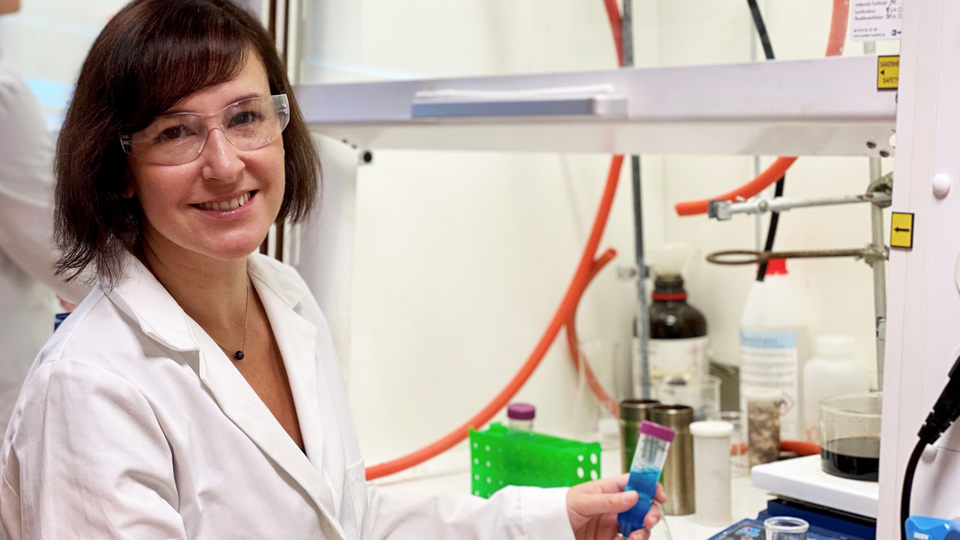
High rate of scientific publications from Mistra SafeChem
The researchers of Mistra SafeChem are diligent producers of scientific articles. Since the start of the programme, over 30 articles have been published.
In a series of news articles, we will let the researchers behind this excellent research explain their work and results.
First out is Belén Martín-Matute, professor at the department of organic chemistry at Stockholm University (picture above). She leads a research group, including Alejandro Valiente, Pedro Tortajada, Erik Weis, Pablo Martinez-Pardo and Magnus Johansson, that focuses on new catalytic processes. Here she explains their two top research areas.
Important advancement towards sustainable chemical reductions
– In the first area, we have explored the use of nickel foam as a catalyst for the hydrogenation reaction of alkynes to alkenes. The nickel foam is also able to catalyze the reduction of acidic water into hydrogen.
Traditionally, this hydrogenation reaction is performed using palladium or platinum catalysts and using molecular hydrogen as the reductant. Palladium and platinum are rare elements, and molecular hydrogen is obtained from fossil resources.
– To replace them with nickel – an abundant metal – and acidic water, respectively, could be an important advance toward sustainable chemical reductions. Our efforts are now focused on assessing the sustainability of the new process, by performing life-cycle assessments and hazard assessments. We also perform non-target screenings for more complete chemical footprints in the life cycle assessment, Belén Martin-Matute explains.
Provides fast access to new potential drugs
The second area of research where the group has made major advances is in the development of methods for the late-stage functionalization (LSF) of drug molecules, a work done in close collaboration between Stockholm University and AstraZeneca.
– LSF is a desired chemoselective transformation on a complex molecule, such as a drug or pharmaceutical, to provide at least one analogue in sufficient quantity and purity for a given purpose. It enables to obtain matched molecular pairs or drug-like analogues. It therefore provides fast access to new potential drugs in a single chemical transformation from existing structures.
As drugs are organic compounds that are very complex, performing a specific chemical modification at a given site of the molecule is very challenging.
– However, if successful, it avoids the novo-synthesis of the drug variants, saving an enormous amount of chemicals and time in drug discovery. This is something I am particularly proud of, says Belén Martin-Matute.
All publications are found on the Mistra SafeChem website
You find all the scientific publications on the web page Deliverables, sorted by year.
-
2024-04-03 | newsFour more years – Mistra SafeChem gets go-ahead for second phase
-
2024-03-28 | newsThe 2023 Mistra SafeChem annual report focuses on more than just one year
-
2024-03-21 | newsSETAC conference on LCA will be held in Gothenburg
-
2024-02-27 | newsMistra SafeChem researchers keynote speakers at large conference on SSbD
-
2024-02-16 | newsThe Mistra SafeChem cosmetics study specially invited to EU workshop on SSbD

